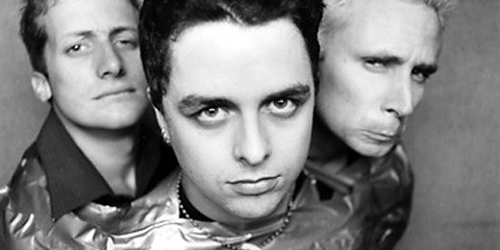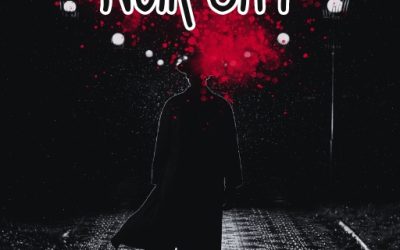In grade 9, no band captivated my fuzzed-out imagination quite like Green Day. 1994’s Dookie and 1995’s Insomniac were interconnected like the best of friends, bristling with electrifying sonic compositions and thematically-focused notions of self-destructive teen angst. To this day, both albums continue to resonate fondly within my soul, as most albums do when one “comes of age” during their teenage years.
But one tends to grow weary of the vanilla flavourings of familiarity. With music, a musician’s relevance tends to rely heavily on that musician’s willingness to alternate styles and texts throughout the duration of their career. Performers like U2, Madonna, David Bowie, The Beatles, and The Rolling Stones (the list does continue) have had continued success over the years because of their ability to experiment and adapt to alternative modes of musicianship.
The same can be said for Green Day.
Though, as much as I’m inclined to loathe the “new and improved” Green Day (a Green Day concerned with the nature of politics, daring to write a song lasting over the pop-punk maximum of three minutes), I can’t fault them for their decision to do so.
During the mid 90s, alternative music seized control of the music scene, and all but guaranteed that any notion of music (no matter how experimentally obtuse) would find acceptance somewhere. But by the late 90s (and in regards to the Pop-Punk scene), society grew tired of bands like Green Day, The Offspring, and Rancid because their sound was frozen within the confines of a musical movement.
Arguably, Pop-Punk garnered worldwide recognition as a result of Green Day’s Dookie, which included hit tracks like Longview, Basket Case and When I Come Around. But musical movements have expiration dates, and tend to eventually wear out their welcome, thanks in large part to the exploitive nature of record labels.
Thus, by the end of the 90s, alternative rock began to reek of banality. Green Day’s musical niche was no longer captivating the eardrums of music fans now focused on boy bands (Backstreet Boys, N Sync) and Nu Metal (Korn, Limp Bizkit)*.
So Green Day went back to the drawing board, and made the decision to reinvent themselves with a new focus and drive dedicated to issues that were far more important than the selfish ideologies of a teenager. The days of mom and dad not understanding me were gone, substituted by social and national issues.
Republican politics became the subject of Green Day’s ire on the 2004 concept album American Idiot.
This transformation exposed Green Day to an entirely new fan base, but tended to ostracize many of the supporters that grew up listening to their 3-chord in-your-face sonic explosions. 21st century Green Day were now about issues affecting the world as a whole, and it was vividly displayed in their three minute-plus tracks. The songs no longer had that sense of urgency that helped to fuel their mid 90s success. Rather, these songs were the epitome of a mainstream rock n’ roll cliché**.
Now, here comes the contradiction. This “new and improved” Green Day does not satisfy me the way they once did. BUT, if they hadn’t altered their sonic styles, wouldn’t I be complaining about their need to grow up and create a new sound?
I make these complaints about Blink 182 all the time.
So here’s what it comes down to…I don’t like that Green Day changed, but I would be angry if they hadn’t changed.
So where is the solution to my problem?
The way I look at it is very simple. During my “coming of age” in grade 9, those two Green Day albums became examples of how important personal soundtracks would be on my journey towards personal growth. If American Idiot had been released when I was in grade 9, I’m almost positive that I would be looking back on that album as a soundtrack to my life, and viewing their current musical output as disappointingly lacklustre.
I truly believe that the music existent during your transformative years will always remain relevant within the deepest depths of your heart. The music of the 90s will continue to resonate with me (no matter how awful some of it may be) because it was present during those “awkward” years.
That’s why I tend to despise most modern-day music because it’s ‘just not the same’. I’m sure 80s kids fret over the same issues concerning the music of the 90s.
The cycle continues from there.
I have tremendous faith in my belief that the music from here on out in my life will never match the emotional connection I have with the music of the 90s.
Call me closed-minded.
But that’s not to say that modern music doesn’t have its moments… It just doesn’t have that compelling allure like music once did.
*Billy Corgan of The Smashing Pumpkins originally disbanded the band because they could no longer compete in a “Backstreet Boy” world.
**There is nothing necessarily wrong with the American Idiot or 2009’s 21st Century Breakdown material, but for me personally, there is no emotional connection to the material.


